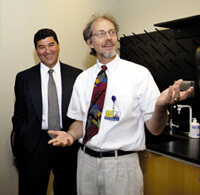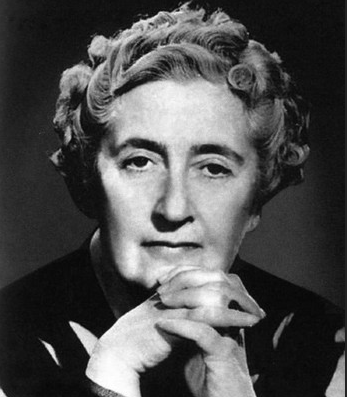
If Agatha Christie Were Around, She Could Easily Write a Novel on Nature Retraction
Fifty years back, Isaac Asimov left biochemistry to write novels on science fiction. Today’s biochemist interested in changing career will have to choose the different genre, if the following retraction story from retractionwatch is any guide.
Nature yanks controversial genetics paper whose co-author was found dead in lab in 2012

Nature has retracted a controversial 2012 paper by a group from Johns Hopkins University which has been the subject of a protracted public dispute.
The article, Functional dissection of lysine deacetylases reveals that HDAC1 and p300 regulate AMPK, came from the lab of Jef Boeke, a celebrated biochemist. But a former lab member, Daniel Yuan, who was fired by Hopkins in late 2011 after 10 years at the institution, had repeatedly raised questions about the validity of the findings. Those concerns eventually made their way into the Washington Post, prompting this response from the university.
The deceased author is Yu-yi Lin, a collaborator on the article who was found dead in August 2012, possibly of suicide, in his Taiwan office.
We looked into the last link and found quite a sad story.
Disputed Research Ends in Tragedy
A biomedical researcher whose Nature paper was called into question was found dead in his lab
A Taiwanese biomedical researcher who co-authored a Nature paper while at Johns Hopkins University (JHU) may have killed himself last summer, on the day he was due to submit a written response to questions regarding the study’s conclusions, reported The Washington Post.
Within hours of the news of Lins death, a note was sent from Lins e-mail address to the account of Yuan. Yu-yi passed away this morning, the e-mail read. You must be very satisfied with your success.
Although he was shocked by the whole affair, Yuan told the Post that he then asked Nature to publish his criticisms and inquired about Boekes response. On September 28, a Nature editor told Yuan that they were waiting on a proper response, but that experiments are being done and probably a Correction written. That correction has yet to appear, though a spokesperson for JHU told the Post that it was now under review by the journal. As a last resort, Yuan also contacted the Office of Research Integrity, who told him that the case is being investigated by JHU.
-————————————————————-
That reminds us of another retraction story from a different lab three years back.
Extortion, Retractions, And More
Now here’s a strange tale, courtesy of Science magazine, about some retracted work from Peter Schultz’s group at Scripps.
…
So far, so not-so-good. But here’s where things get odd. Around this time (early 2007), Zhang started to get e-mails at Texas saying that unless he send $4000 to an address in San Diego, the writer would expose his “fraud” and cause him to get fired. The messages were signed “Michael Pemulis” - Science doesn’t pick up on that pen name, but fans of the late David Foster Wallace will recognize the name of the revengeful practical joker from [Infinite Jest] (http://www.amazon.com/gp/product/0316066524?ie=UTF8&tag=lagniappe-20&linkCode =as2&camp=1789&creative=390957&creativeASIN=0316066524).
That brings up another point: the e-mails quoted in the Science article are in somewhat broken English: “you lose job. … Texas will fire you before you tenure. . .” and that sort of thing. But my belief is that no one who drops the second person possessive while writing would make it far enough into Infinite Jest to meet Micheal Pemulis and use him as an appropriate alias for an extortion plot.
At any rate, after the San Diego police got involved, they told Zhang that they had a suspect, but Zhang decided not to press charges. That fall, though, “Pemulis” dropped the bomb, with a hostile anonymous letter to everyone involved - officials at Scripps and UT-Austin, the editors at Science, etc. In 2009, Zhang was denied tenure. Eric Tippman (now at Cardiff) has published a paper in JBC detailing the problems with the original work. (He denies having anything to do with the missing lab notebooks or the threats made to Zhang). And everyone involved is still wondering just what is going on. . .

Suicide, extortion - all related to retractions of various high-profile science papers. Where is Agatha Christie, when we need her?
-—————————————————————–
We do not want to keep harping on the ‘big science’ theme, but clearly the reckless money distribution by NIH contributed to the problem in big way.
HOPKINS GENETICIST GETS $17 MILLION NIH “ROADMAP” GRANT
National Institutes of Health’s Roadmap for Medical Research to develop new technologies to comprehensively examine proteins’ interactions in systems ranging from yeast to human cells.
The grant is one of the first two awarded as part of the NIH’s plan to support in-depth study of cells’ complex biological interactions from the perspective of proteins rather than genes. Many people are by now familiar with genes, which carry the blueprint for proteins. But as scientists develop tools to figure out on very large scales how proteins interact, these workhorses of cells will be making headlines more often.
Researchers receive $1 mill to map mobile DNA in humans
Stimulus funding supports mapping transposon locations in more than 100 people over the next two years
Sequencing the human genome was just one step in understanding our biology; researchers still know very little about the function of most of our DNA. Now, a team of researchers at the Johns Hopkins School of Medicine has been awarded $1 million in stimulus funding to examine how certain mobile segments of DNA known as transposons contribute to human genetic diversity, by mapping transposon locations in more than 100 people over the next two years.
Transposons contribute to human genetic diversity in ways we are just beginning to understand, said Jef Boeke, professor of molecular biology and genetics, and director of the High Throughput Biology Center at the Institute for Basic Biomedical Sciences at Johns Hopkins. We hope this work will provide the basis for future research looking at how transposons affect health and disease.
1 Million from BBSRC and EPSRC for Synthetic Yeast
Professor Boeke, the overall head of the project at Johns Hopkins Medical School in Baltimore, said: Sc2.0, once completed, will provide unparalleled opportunities for asking profound questions about biology in new and interesting ways, such as: How much genome scrambling generates a new species? How many genes can we delete from the genome and still have a healthy yeast? And how can an organism adapt its gene networks to cope with the loss of an important gene? Moreover, genome scrambling may find many uses in biotechnology, for example in the development of yeast that can tolerate higher ethanol levels.
What happened to the era, when scientists dedicated their lives to address one or two major problems and solved them for good for the next 300 years?